How Anti-Social Are You?
How anti-social are your tendencies? Where does your state rank in anti-social behavior? See where you fall compared to our survey takers!
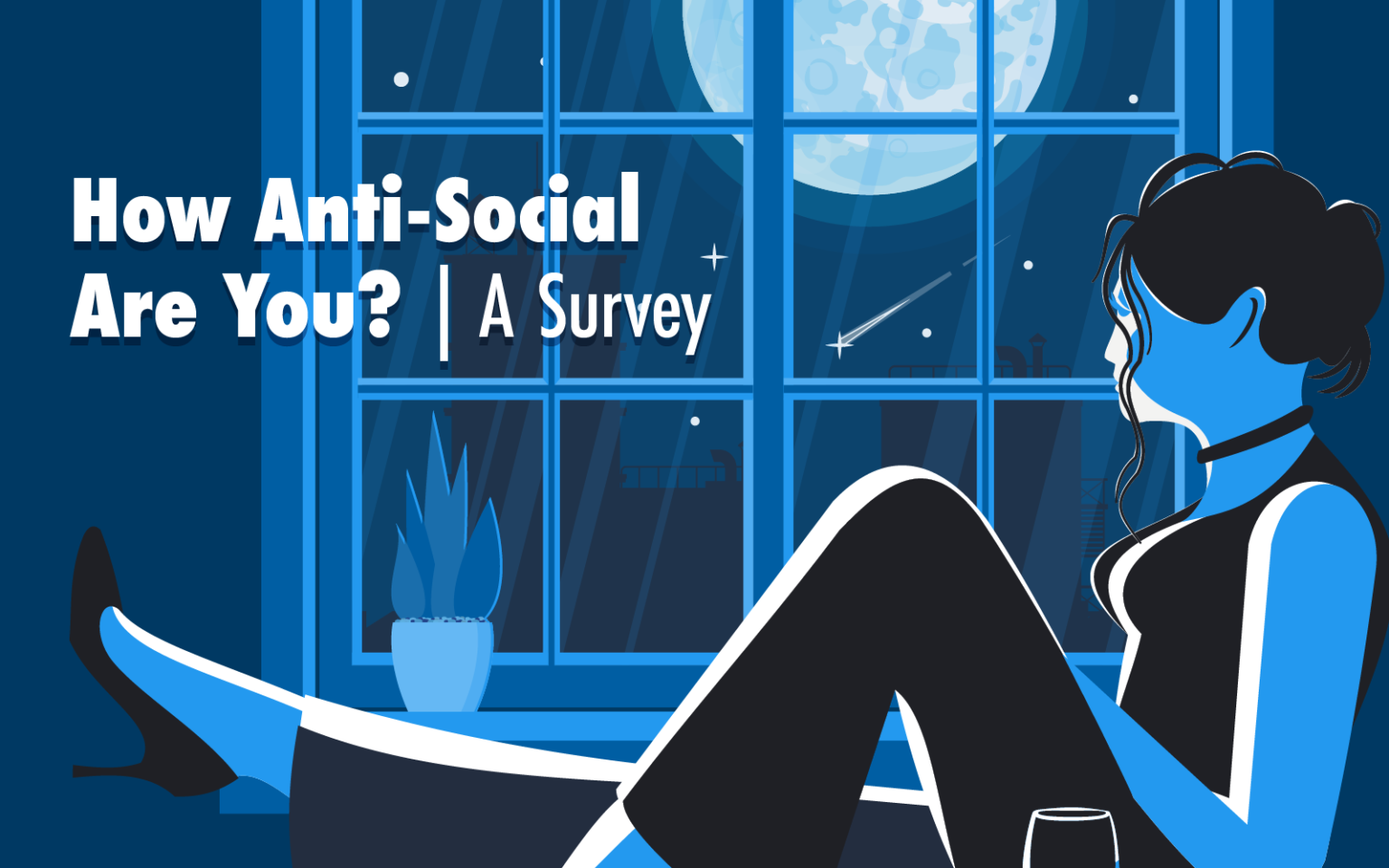
How anti-social are your tendencies? Where does your state rank in anti-social behavior? See where you fall compared to our survey takers!

It’s safe to say we’ve all been more anti-social since March of 2020.
Remote working, social distancing, a rise in meal and grocery delivery sites, and the general preference to remain in our pajamas have us all more withdrawn than our pre-2020 selves. And if you were already considered anti-social, it’s possible you’ve gone full hermit.
With all the changes in the last year and a half regarding how we interact with others, we wondered where people’s anti-social behaviors now fall on a scale and how they compare to those of others.
We developed a survey to find out, and the answers will either make you feel seen or super social.
How do you know if you’re anti-social? See which group you fall in based on our survey takers’ responses.
To get our answers, we surveyed 3,200 Americans in October of 2021, asking them to rate themselves on a scale of one to five when it comes to anti-social behaviors, where 1 = never anti-social and 5 = always anti-social.
The term “anti-social” was defined for survey takers as follows: unmotivated by the company of others, showing a disinclination for social activity/social settings, or avoiding making plans with others.
We also asked supplemental questions about anti-social habits, like why and how frequently they avoid phone calls, if they feel relief when plans are canceled, and a variety of “would you rather” questions related to social gatherings.
We analyzed the responses to learn which states are most and least anti-social, as well as to take the temperature of people’s current social behavior.
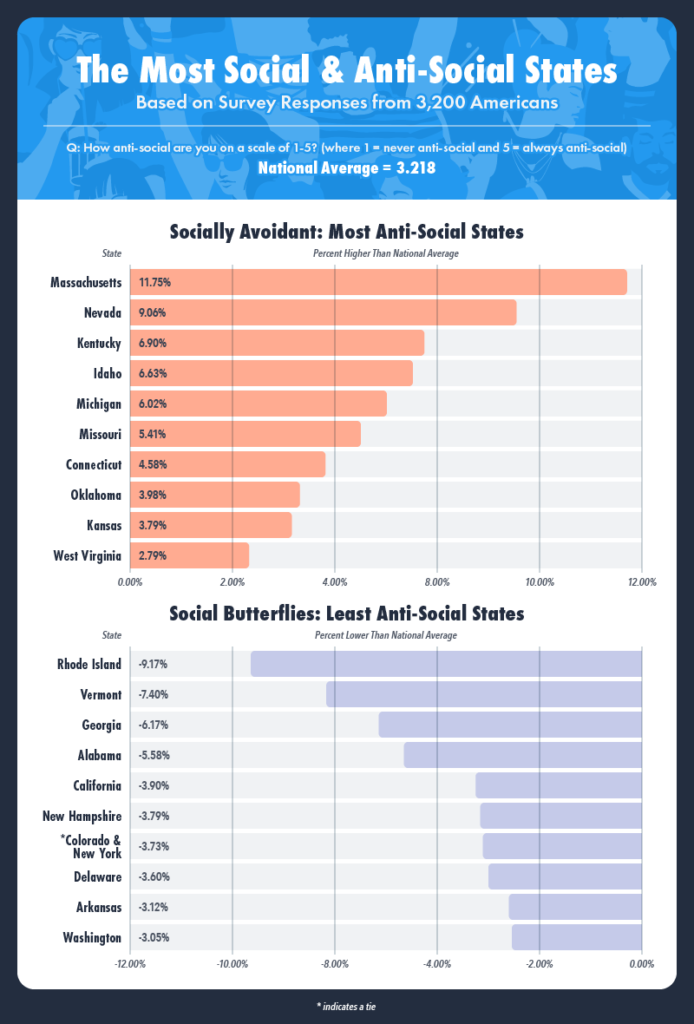
Interestingly, the most and least anti-social states share a border.
Based on its residents’ answers to our survey questions, Massachusetts actually tops the list as the most anti-social of all the states, with a rating of 3.596 on our one to five scale––11.75% above the national average. Nevada, Kentucky, and Idaho aren’t far behind, with scores of 3.509, 3.440, and 3.431 respectively.
The least anti-social state, however, is Rhode Island, just a quick jump over the state line from Massachusetts. Rhode Island came in at a 2.923 and was followed by Vermont, Georgia, and Alabama as the most sociable states in the U.S.
Residents’ social behaviors appear to have little to do with the geographic region; however, age seems to play a factor.
For instance, 70% of Gen Z respondents say they experience FOMO (fear of missing out) when they stay at home, while 75% of millennials reported being happier at home than going out, and 47% of millennials choose the drive-thru over going into restaurants to avoid people.
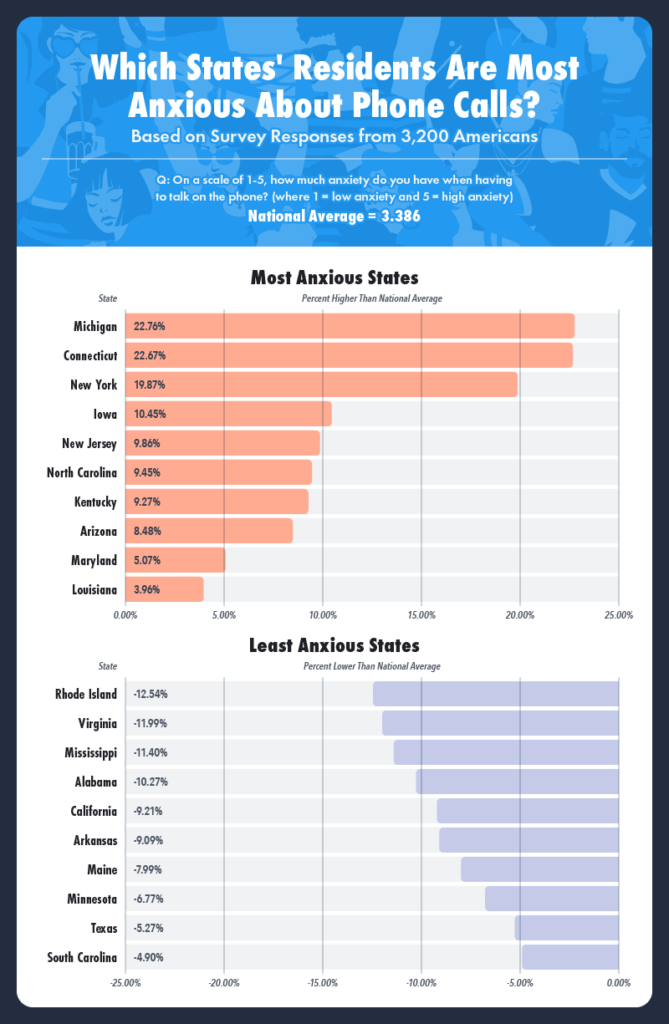
We also looked at how states compare when it comes to things like everyday phone usage.
We asked respondents across all 50 states to rate their anxiety levels when talking on the phone on a 1-5 scale.
Residents in Michigan and Connecticut reported getting the most anxiety making phone calls––22.76% and 22.67% more anxious than the national average, respectively. Understandably, Rhode Islanders are the least anxious callers, with Virginia not far behind.
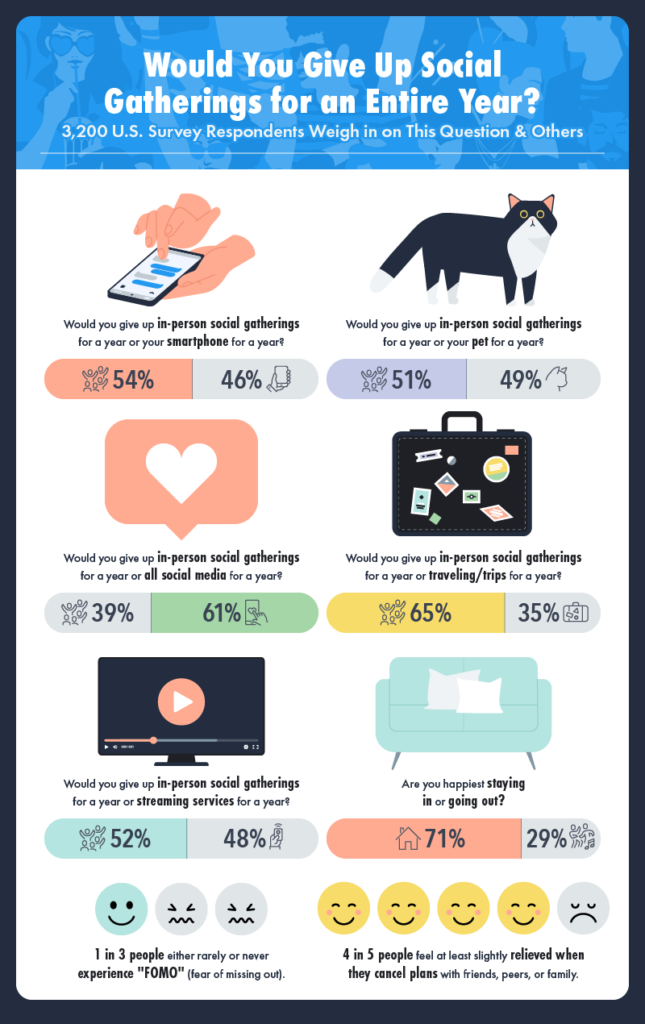
Next, we looked at how valuable social gatherings are for Americans.
Despite being encouraged to socially distance the last year and a half, many of those surveyed didn’t seem to mind according to what they prioritized over social gatherings.
We asked survey respondents a series of “would you rather” questions to see where social gatherings fell on their list of priorities. Of the questions we asked, they chose to keep social gatherings over only one offering.
The majority of respondents say they’d give up social gatherings for a year over their smartphone, streaming services, pets, and traveling. The only thing they preferred to lose for a year in lieu of being able to gather with family and friends was social media.
We also learned that 71% of our survey takers are happier staying at home than going out, one in three say they never have FOMO, and four out of five people say they feel relief when canceling plans.
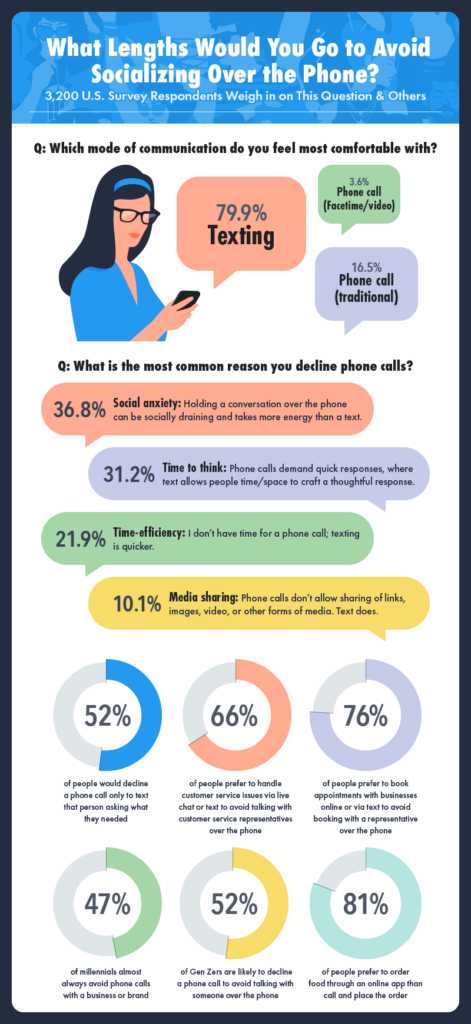
As we can see from the data above, it’s not just in-person social gatherings people are happy to avoid. Americans also have anti-social behaviors when it comes to phone usage.
When asked what lengths they would go to in order to avoid socializing on the phone, here’s how those surveyed responded:
In addition, 79.9% report preferring texting over a call of any kind. When asked what their reason for declining phone calls is, the top answer was social anxiety.
Next was needing time to think through what they wanted to say, followed by wanting to be efficient with time and the inability to easily share media via a call.
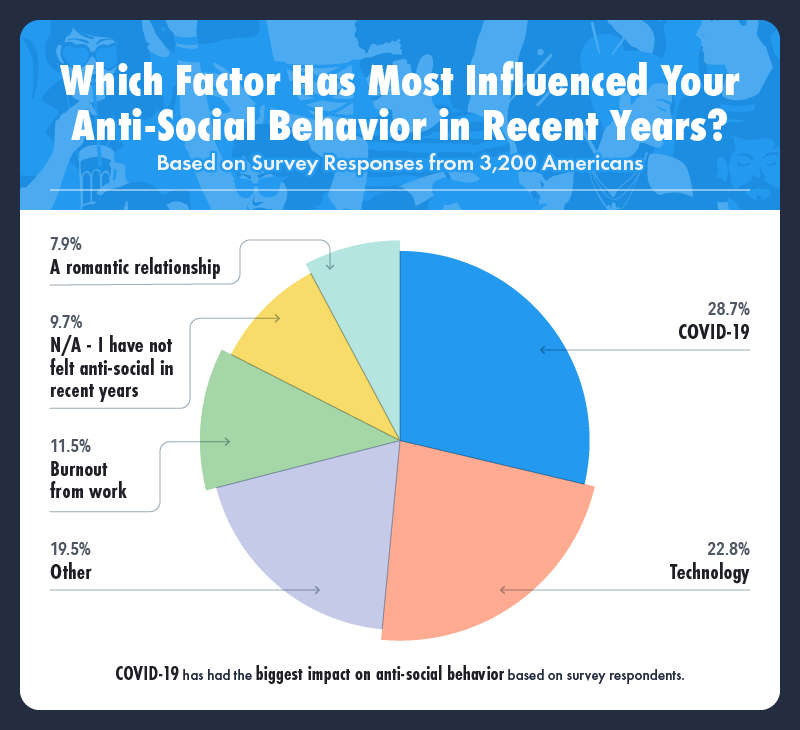
We then wanted to figure out what’s causing these anti-social behaviors. Not surprisingly, the top answer was COVID-19, which we took to mean practicing social distancing.
The next answer was technology.
It’s possible this is due to technology providing enough social stimulation for some people that they don’t feel the need for much in-person interaction. Almost 20% of people responded with “Other,” which could potentially include reasons like social anxiety or other mental health challenges.
Burnout from work also made the list of why people become withdrawn.
So, how anti-social are you? Do you fall toward the more social end, somewhere in the middle, or are you reading this from your private island?
One thing is clear: Americans overwhelmingly prefer texting, which is good for those leveraging SMS marketing. SimpleTexting’s all-in-one text messaging service makes it easy, fast, and affordable to send SMS marketing campaigns and engage in one-on-one conversations with customers.
Want to see how it works? Get a quick demo.
Alice is a copywriter at SimpleTexting. When not teaching the world about the benefits of business texting, you can find her feeding family, friends and strangers with her latest baking experiment.
More Posts from Alice DoddStruggling to get students to open up about mental health? Learn how to create a digital safe space where they can reach out and get access to resources with SMS.
ReadWant to send more targeted messages that result in more sales? Read on for a quick guide to the most common types of retail customers and how to interact with them.
ReadStart a text marketing campaign or have a 1-on-1 conversation today. It's risk free. Sign up for a free 14-day trial today to see SimpleTexting in action.
No credit card required